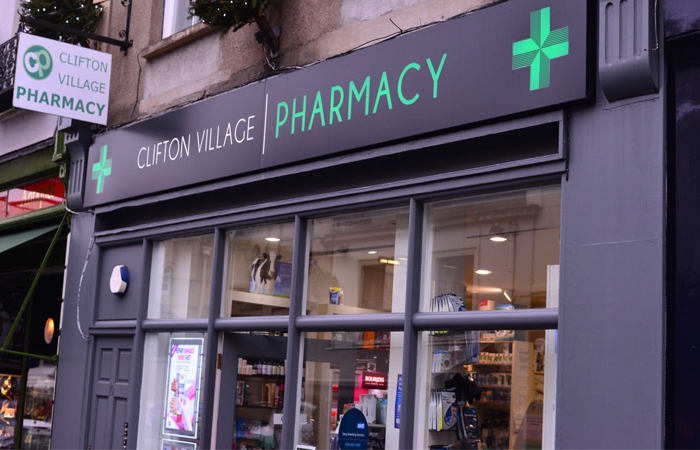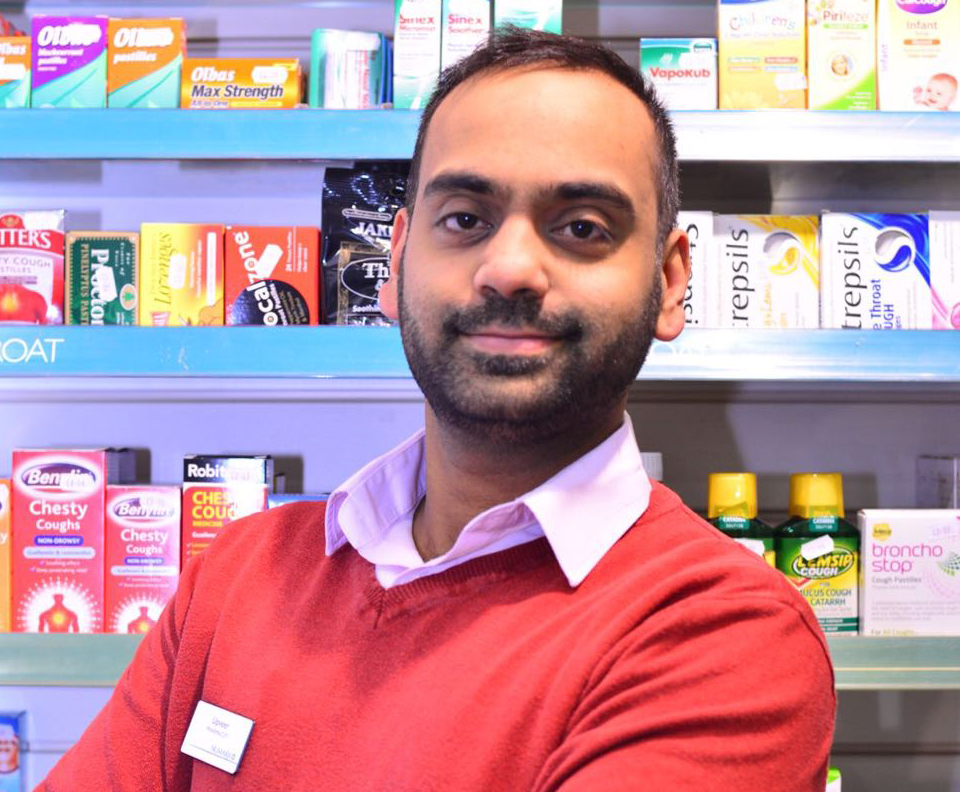Case study: Clifton Village Pharmacy, Bristol
In Services Development
Follow this topic
Bookmark
Record learning outcomes
Bristol pharmacist Upveer Manro estimates his pharmacy has already delivered more than 1,000 flu jabs this flu season [as of December], which he attributes to a motivated team actively recruiting local patients. Mr Manro tells P3 how the service has grown over the years and how he plans to enhance the pharmacy’s service offering in future

How has your flu jab delivery grown over the years?
We do flu jabs both on the NHS, which we administer in the consultation room, and privately, much of which involves going out to local businesses to administer vaccines to staff. We’ve done roughly 400 jabs for NHS patients so far, but the bulk of the uptake has been among private patients, and I’m fairly confident that between the two groups we’ve done over 1,000.
The secret to our success with flu jabs has been the team we have here. They actively recruit people when they come in, explaining how it works and how they might benefit from getting themselves or their loved ones vaccinated. We’ve not had to do very much marketing. This is the fourth year we have run it and with each year it’s more and more successful. This flu season, for the first time, I’ve hired a locum to go out to businesses to provide jabs, which shows the growth we’re seeing.
Have the changes to the service specification had an impact?
It’s great to see Public Health England pushing to get more care workers vaccinated, but this year we haven’t been able to reach as many as I would have liked. The main groups we target are over-65s and younger people with certain health conditions. However, we do try to speak to anyone who we know has a carer to explain the benefits of their carer being vaccinated and, again, the team have been instrumental in this. We hope to reach more next flu season.
What kind of feedback have you had?
One thing that marks us out from some other pharmacies providing the service is that we can provide jabs without an appointment. During flu season, I am in the pharmacy six days a week, which frees us up to see walk-in patients. In fact, the vast majority of people who’ve had the jab have been walk-ins. So we get a lot of positive feedback from people who say that it’s much more convenient than going to a GP. Often you have to wait weeks with the surgery.
On the subject of GP practices, how have they responded to the service?
We haven’t heard a lot from practices in the area. We have had some of them refer to us if they have run out of vaccines or don’t have the capacity. We’re not next to a GP surgery, so we don’t seem to have the issue other pharmacies do where they’re directly competing with GPs.
The surgeries in our area seem to see it as a positive thing, which is great; it’s co-operative, which is how it should be. It’s a service at the end of the day, so whoever delivers it, it’s the patient who’s getting the benefit. That’s how I see it, and I think it’s the same for the local GPs.
Do you have plans to develop your service offering?
I’m definitely keen to take on any NHS or private services. In terms of NHS services, if there is going to be a minor ailment service, for example, I would love to take it on. With private services, we would love to increase our vaccine offering, which could include moving into travel health or meningitis.
Flu jabs are definitely the most successful service every year. In terms of private services, we’ve found that PGDs are useful, such as erectile dysfunction, which has had good uptake. Malaria has been really good as well, although sadly the Maloff switch has massively dented our malaria service. Now that people can pick it up it as a P medicine in pharmacies, it almost decimated our antimalarial PGD, whereas we were providing a unique service in our area before
What do you see as the most pressing issues facing community pharmacy?
The NHS funding cuts have had a massive effect on our bottom line. Unfortunately, we are in the group of independent pharmacies that have the highest risk due to our size and our profile. My attitude is to try and increase our private services to try and recover that missing income. We’re almost forced to take on more and more private services, doing significantly more work to get the same pay we had and working longer hours to try and keep our heads above water. Luckily the staff are motivated and can handle the workload.
How do you keep the team engaged?
I’ve got a young team; I’m reasonably young and the staff are all very young, which is fairly unique for a pharmacy. It’s a dynamic, hardworking, enthusiastic team of people who are highly motivated. The energy they bring to the job translates into things such as massively increasing flu jab uptake. Training can definitely help with keeping people engaged, and we focus quite heavily on this. We’re in the process of transitioning to healthy living pharmacy status. We do regular training days, and use this as an opportunity for a team outing.
Upveer Manro talks us through his background and business ethos
I qualified as a pharmacist almost four years ago, and am now running the family business, which is in a busy, affluent area of Bristol. The ethos at Clifton Village Pharmacy is very mu ch about offering a personalised service to people. We’re quite a small team, and we’re on first-name terms with all our patients and customers and get to know them very well. We know everyone who comes in and they all know us, which gives things a real community feel. Even though the area is expanding a lot, we try to maintain that village feel, and it seems to be working.
ch about offering a personalised service to people. We’re quite a small team, and we’re on first-name terms with all our patients and customers and get to know them very well. We know everyone who comes in and they all know us, which gives things a real community feel. Even though the area is expanding a lot, we try to maintain that village feel, and it seems to be working.
The secret to our success with flu jabs has been the team we have here
